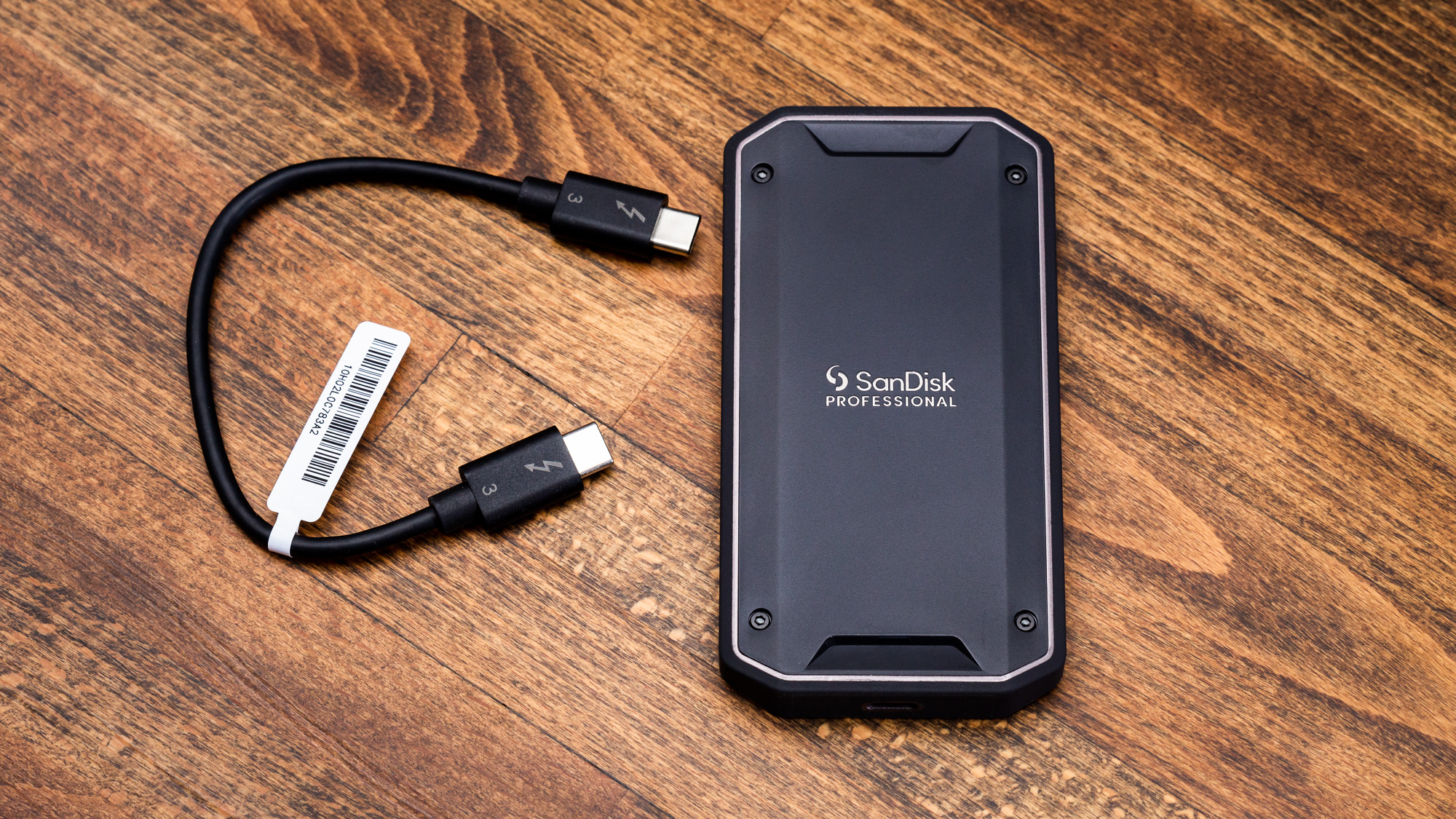Tom's Hardware Verdict
The 2TB SanDisk Pro-G40 is a top notch portable SSD with strong all-around performance and consistency. It’s also rugged with the advantages of the Thunderbolt interface, making it the best choice for creators.
Pros
- +
Excellent all-around performance
- +
Class-leading sustained write performance
- +
Rugged, aesthetically-pleasing design
Cons
- -
Price
Why you can trust Tom's Hardware
Update 28th November 2022: We've updated this article with new testing for the 2TB SanDisk Pro-G40 SSD on page 2.
Original Review published 17th November 2022:
The SanDisk Pro-G40 is a resilient and fast portable SSD with a USB-C interface for both Thunderbolt 3 and USB 3.2 Gen 2 transfer modes. This gives it some flexibility, as it will work with a large number of devices with a high maximum speed. The metal core is surrounded by a silicon bumper edge to protect the drive from drops and other accidents while also keeping the internal M.2 SSD cool. The USB-C port is reinforced with metal for added protection, and SanDisk specs the full SSD with an IP68 water resistance rating. The drive comes with a Type-C to Type-C cable, an ample warranty, and solid support.
This drive is priced for professionals, and the combination of sustained performance and toughness is something we last recommended in the Samsung T7 Shield. The SSD technology in the Pro-G40 is a little bit older, but it has the advantage of DRAM and a Thunderbolt mode over the T7 Shield. Western Digital’s PCIe 3.0 drives, like the Red SN700, are known for their superb sustained write performance and overall consistency. This is also true of the Pro-G40, making it unrivaled if you need to transfer data quickly in the field.
Specifications
| Product | 1TB | 2TB |
|---|---|---|
| Pricing | $299.99 | $449.99 |
| Form Factor (Internal) | M.2 2280 | M.2 2280 |
| Interface / Protocol | Thunderbolt 3, USB 3.2 Gen 2 | Thunderbolt 3, USB 3.2 Gen 2 |
| Bridge Chip(s) | JHL7440 + ASM2362 | JHL7440 + ASM2362 |
| Included | Thunderbolt 3 USB-C to USB-C Cable | Thunderbolt 3 USB-C to USB-C Cable |
| Controller | SanDisk Proprietary | SanDisk Proprietary |
| DRAM | DDR4 | DDR4 |
| Memory | SanDisk 96-Layer BiCS4 | SanDisk 96-Layer BiCS4 |
| Sequential Read (TB3 | USB) | 2,700 MBps | 1,050 MBps | 2,700 MBps | 1,050 MBps |
| Sequential Write (TB3 | USB) | 1,900 MBps | 1,000 MBps | 1,900 MBps | 1,000 MBps |
| Random Read | N/A | N/A |
| Random Write | N/A | N/A |
| Security | N/A | N/A |
| Resistance | IP68 | IP68 |
| Endurance (TBW) | N/A | N/A |
| Dimensions | 111 x 58 x 12 mm (4.36 x 2.28 x 0.47 in) | 111 x 58 x 12 mm (4.36 x 2.28 x 0.47 in) |
| Weight | 121.2 g (0.27 lbs) | 122.3 g (0.27 lbs) |
| Part Number | SDPS31H-001T-GBCND | SDPS31H-002T-GBCND |
| Warranty | 5-Year | 5-Year |
The SanDisk Pro-G40 is rated for up to 2,700/1,900 MBps for sequential reads and writes, respectively, in Thunderbolt 3 mode. It has a separate rating of up to 1,050/1,000 MBps in USB mode. The former is using a 40 Gbps connection, with the latter being 10 Gbps. This is valid for both available capacities.
The unit is fairly portable, weighing in around 120 grams with a 4.36 x 2.28 x 0.47 inch footprint. It’s also designed to be a bit rugged with an IP68 rating, meaning it is dust- and water-resistant. SanDisk also states it can survive a three meter fall with up to 4000 pounds of crush resistance. The company backs this up with a 5-year warranty.
Software and Accessories
The SanDisk Pro-G40 comes with a relatively short 20cm (or about 8”) USB Type-C to Type-C cable. Western Digital has a variety of downloads available for its drives, and SanDisk also provides its own SSD Dashboard software. This should cover any basic needs.
Get Tom's Hardware's best news and in-depth reviews, straight to your inbox.
A Closer Look
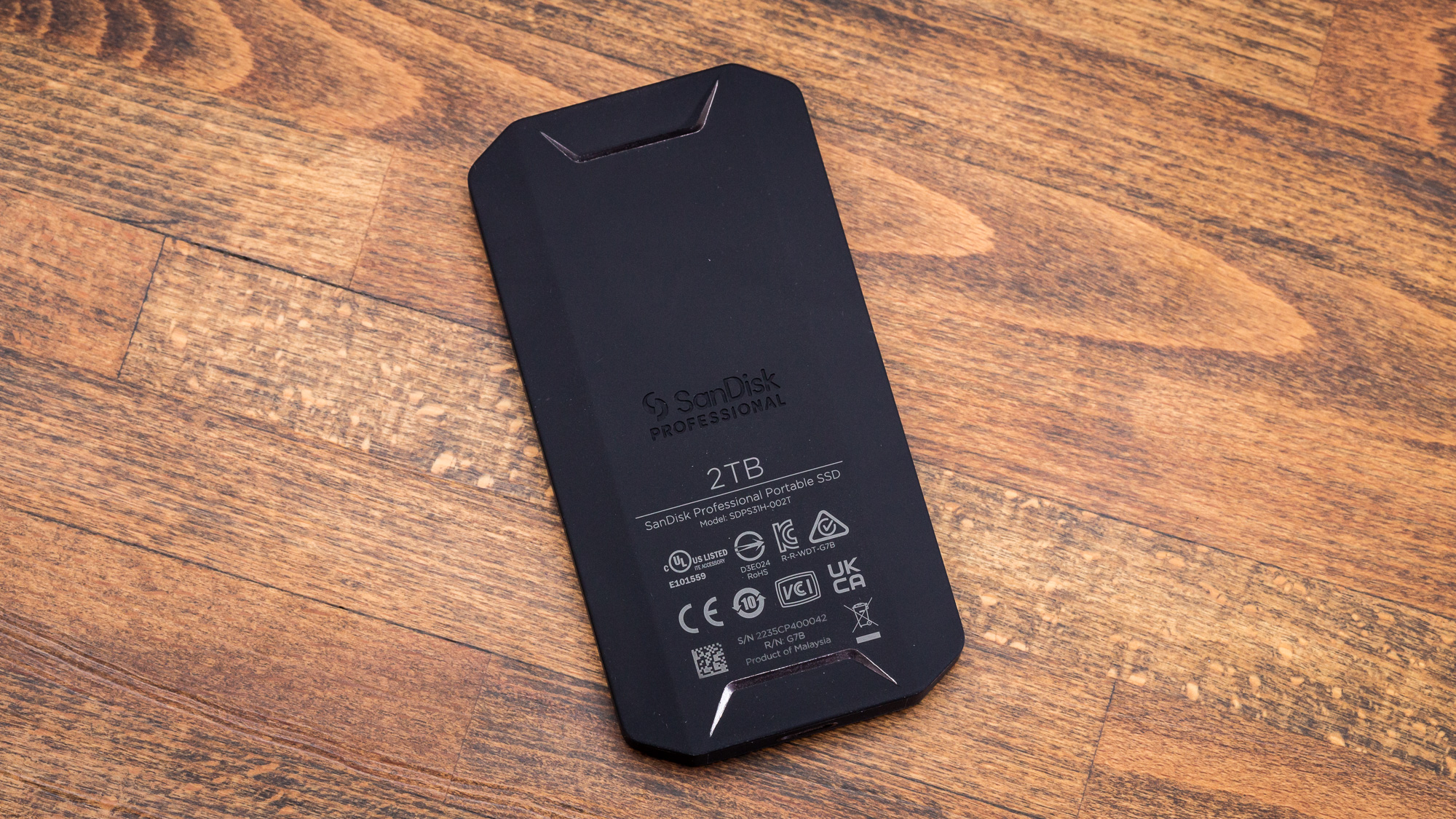
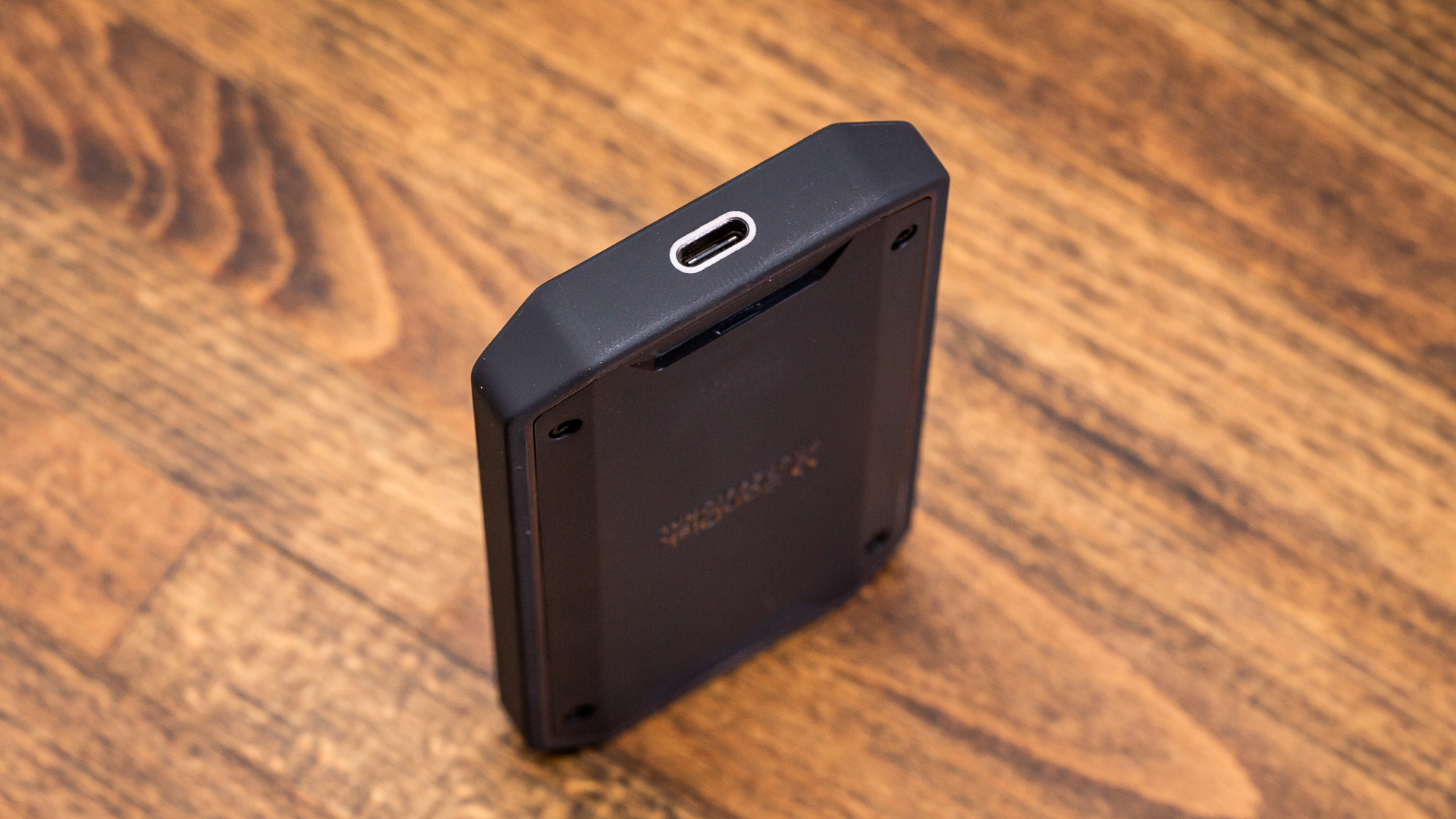
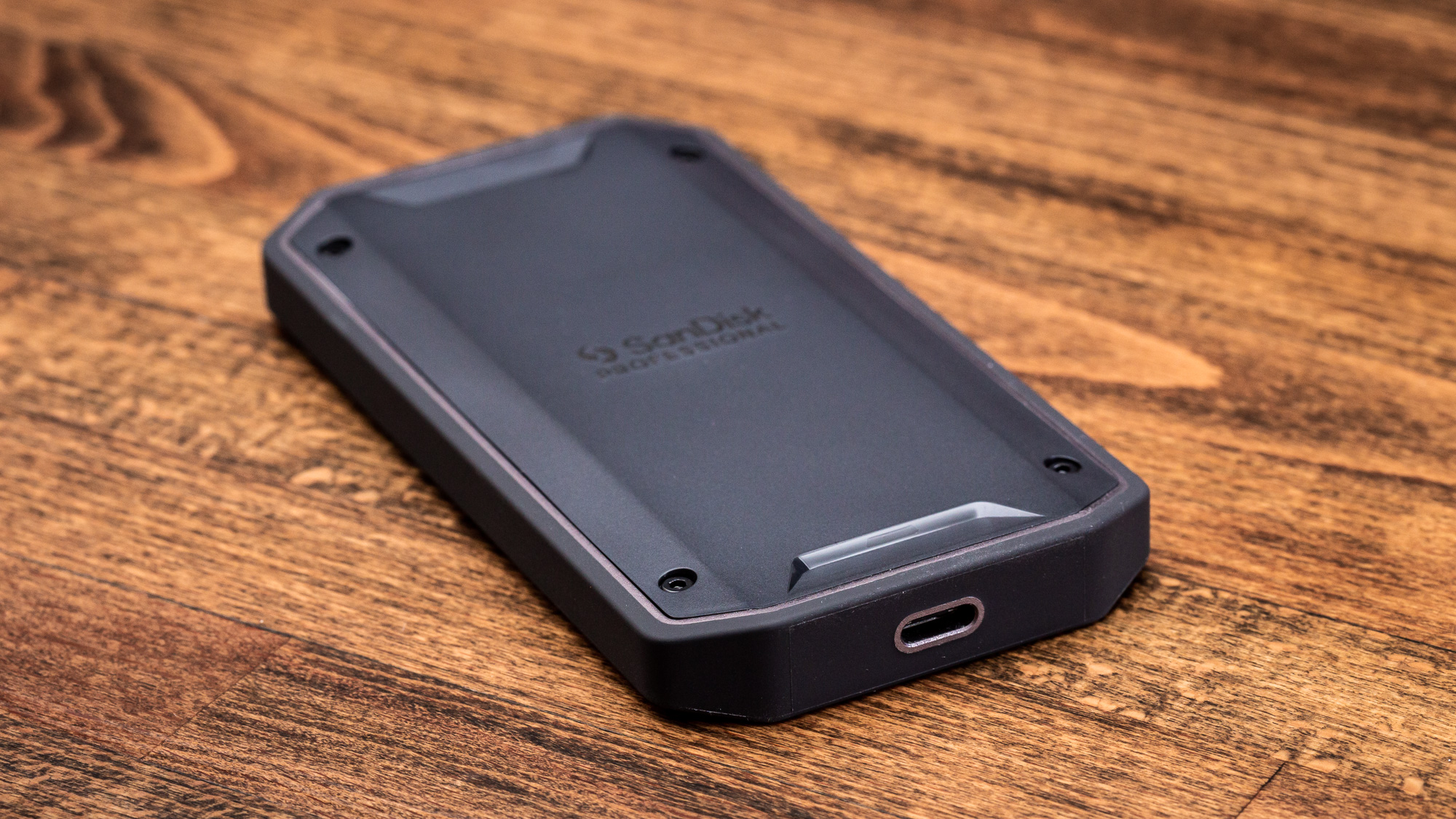
The SanDisk Pro-G40 is a pleasant drive to behold. The aluminum core is rugged and also helps with heat dissipation. The USB-C port is reinforced with metal for added durability. The drive is also protected from drops with its rubberized edges. The design is simple but effective.
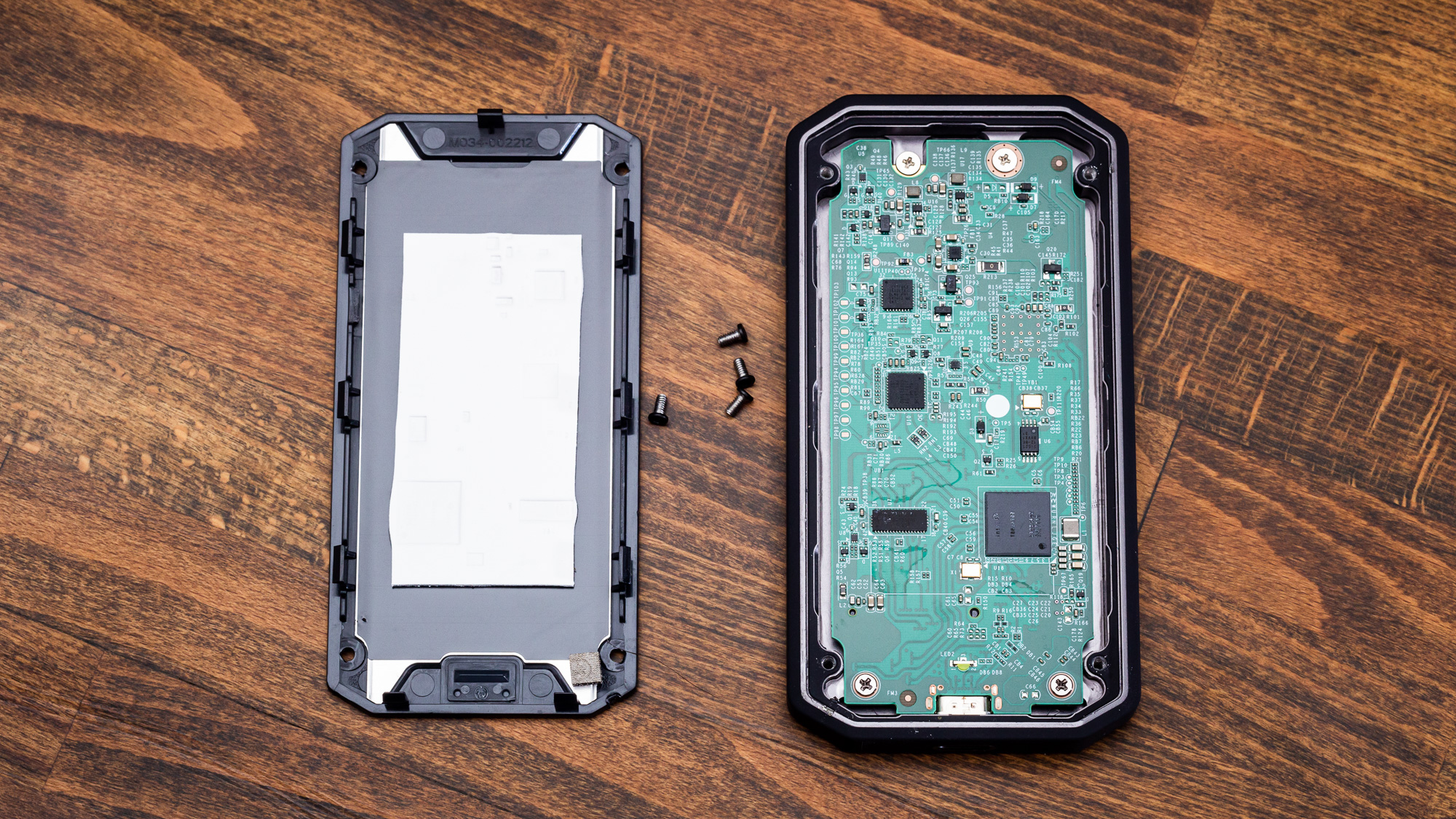
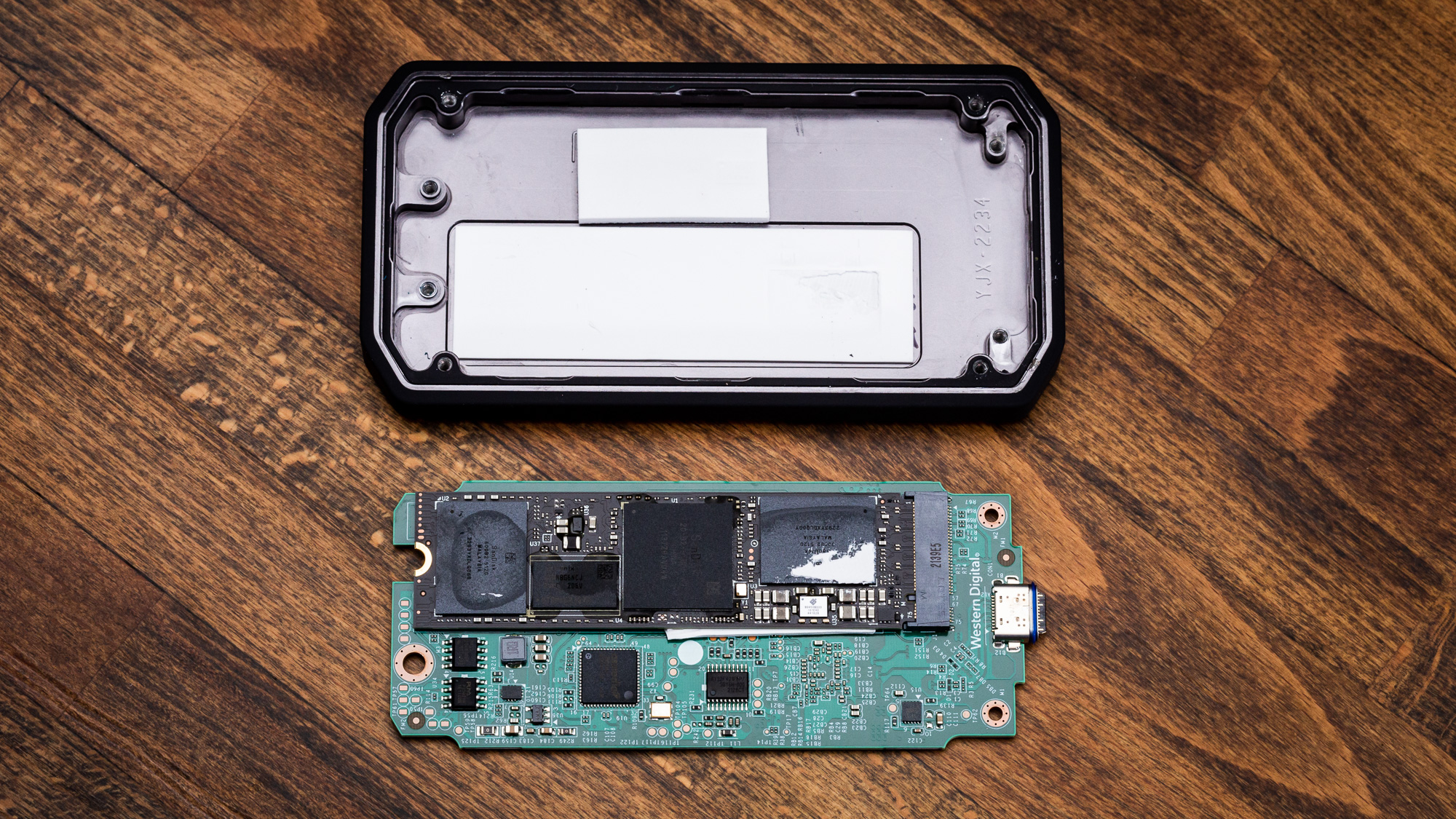
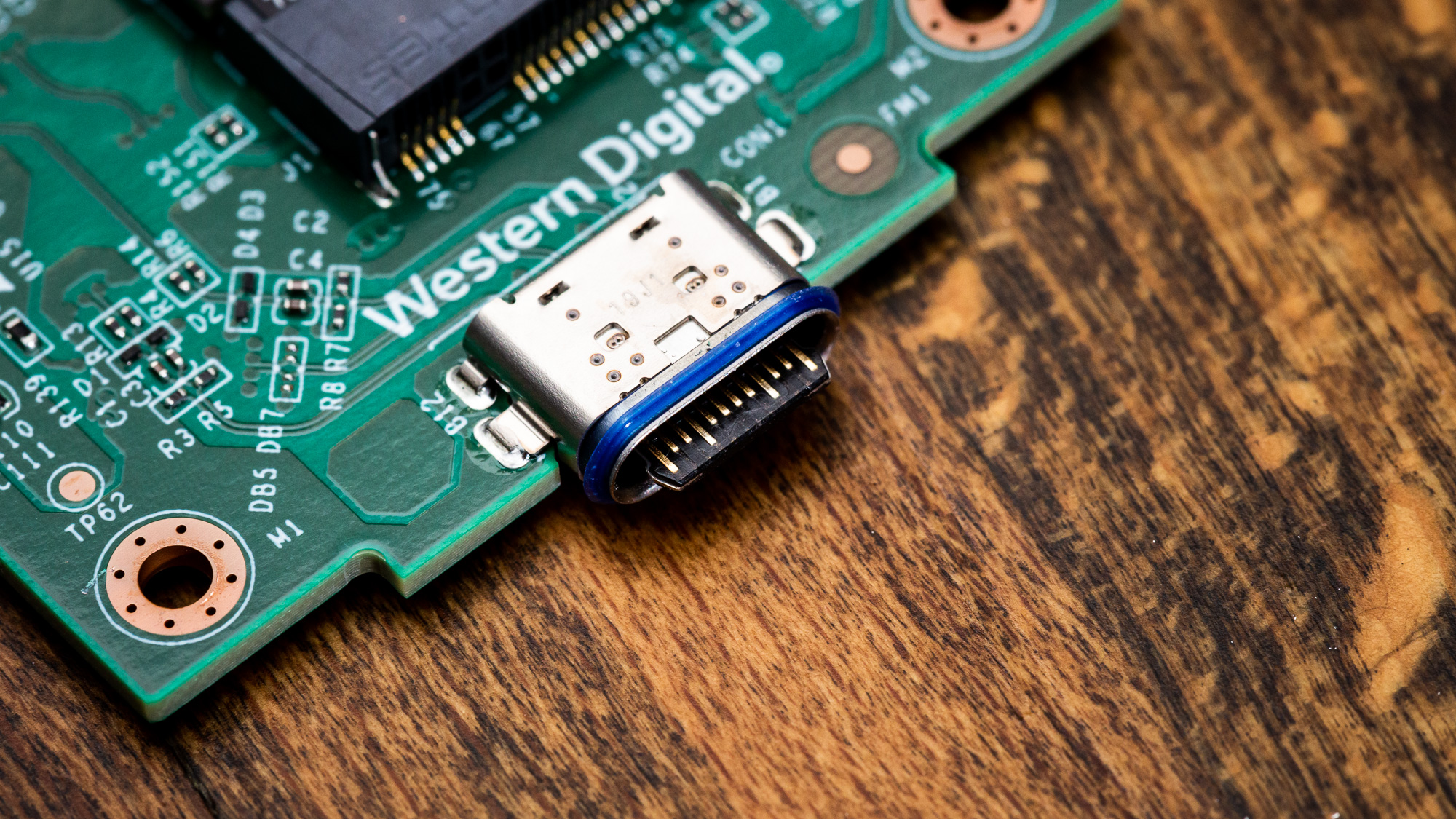
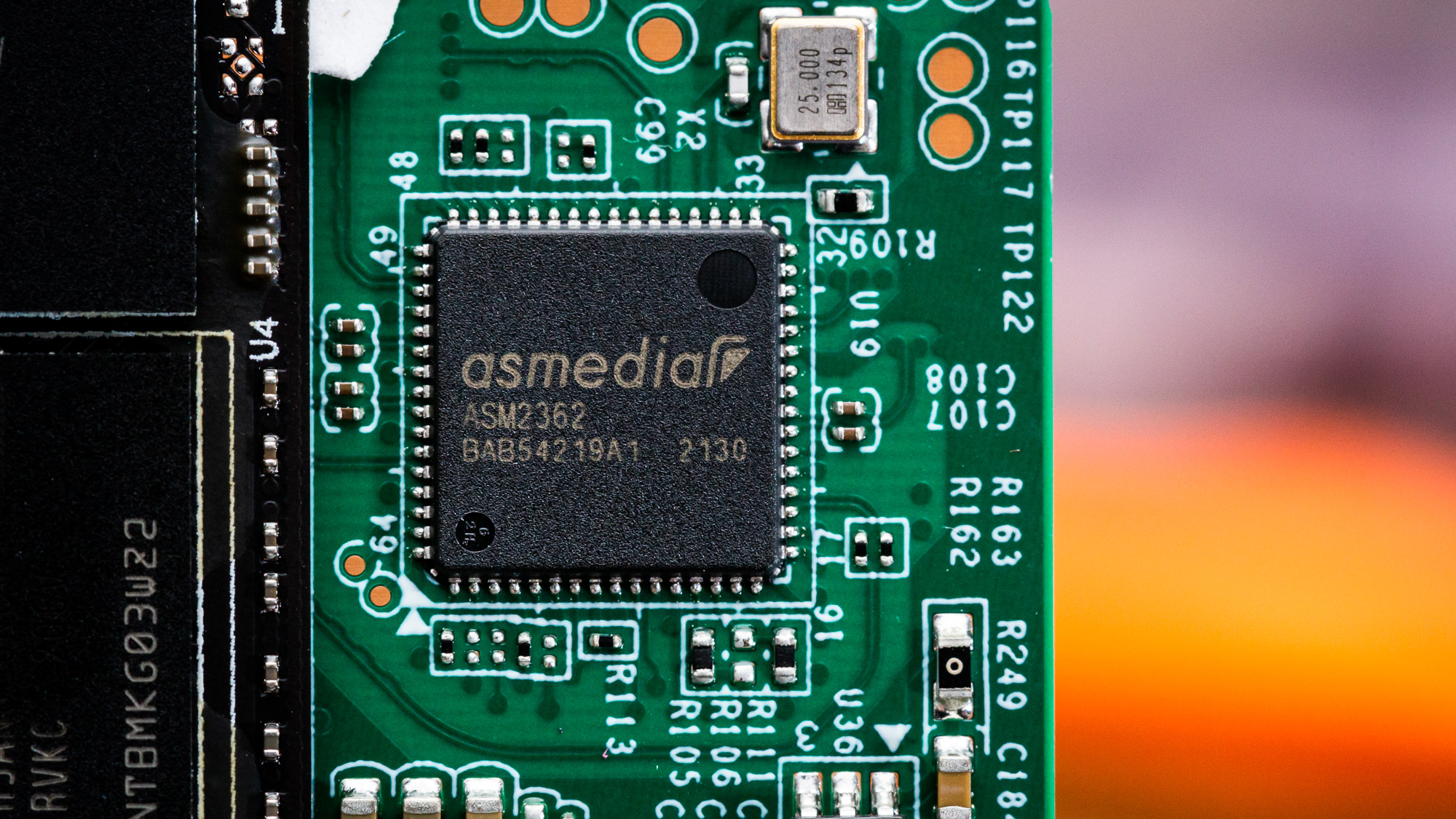
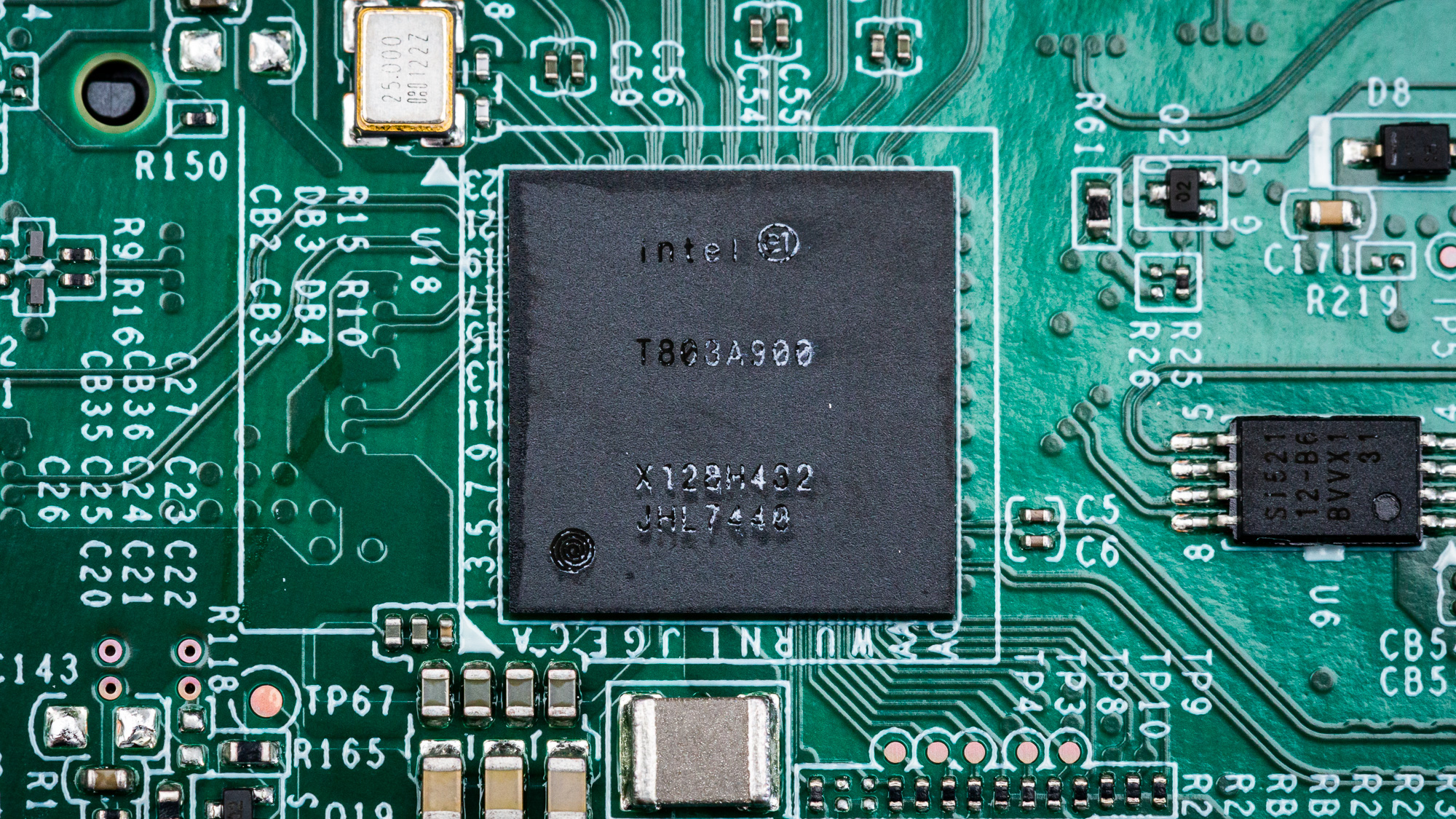
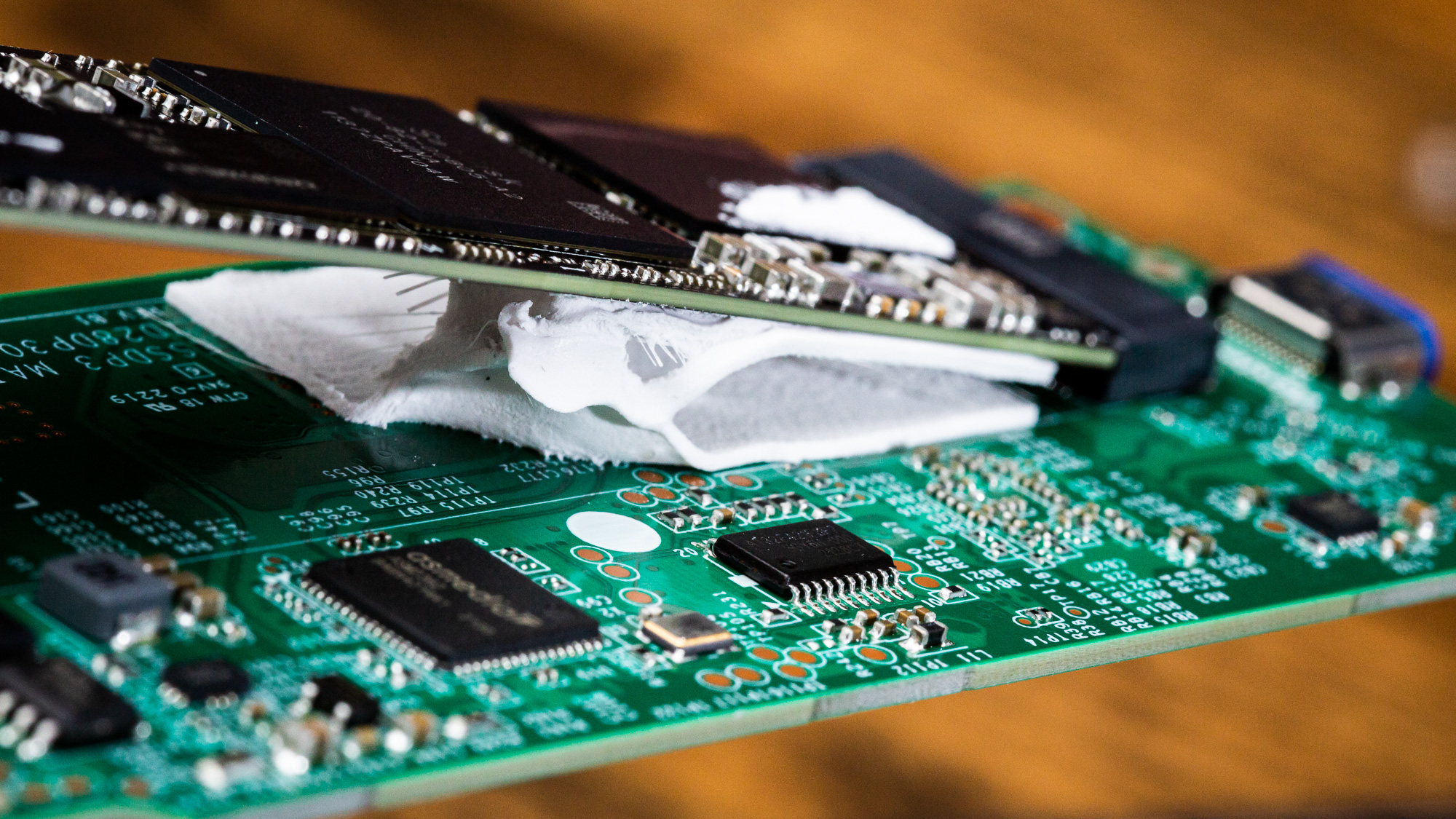
We do not recommend opening the casing as it does require some finesse. The case has ample thermal padding to ensure efficient heat transfer. Inside we see the PCB with the SSD, the Thunderbolt controller, the bridge chip, and a USB-C port.
The drive is in the standard M.2 2280 form factor with a controller, two NAND packages, and DRAM. The Thunderbolt 3 controller is a Titan Ridge JHL7440 and the USB bridge chip is the 10 Gbps ASMedia ASM2362. This bridge is commonly used in retail portable SSDs. As the drive has DRAM there is no need to worry about the slower Host Memory Buffer tech we see in slower devices, although this would be passed over Thunderbolt 3 (TB3).
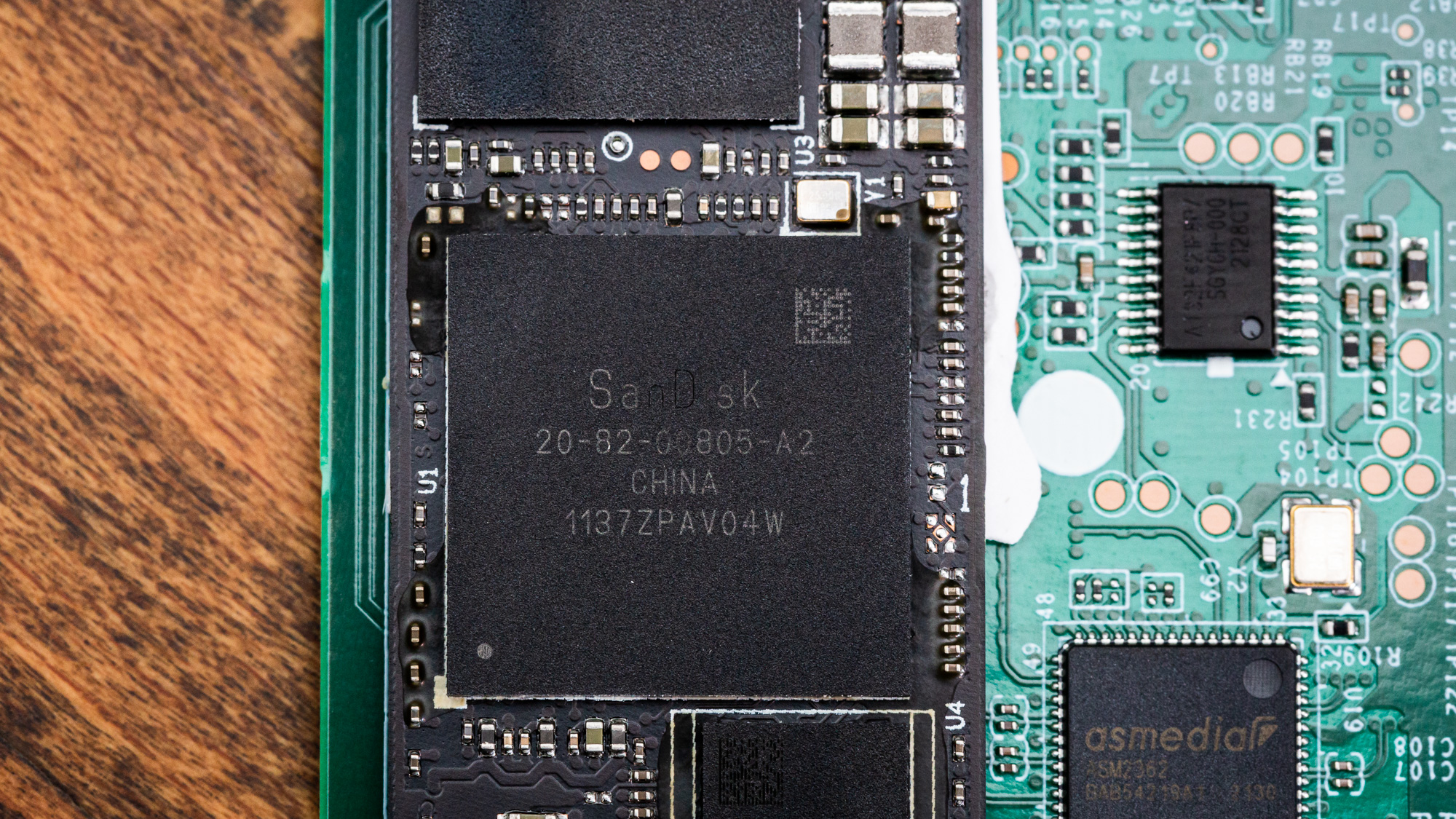
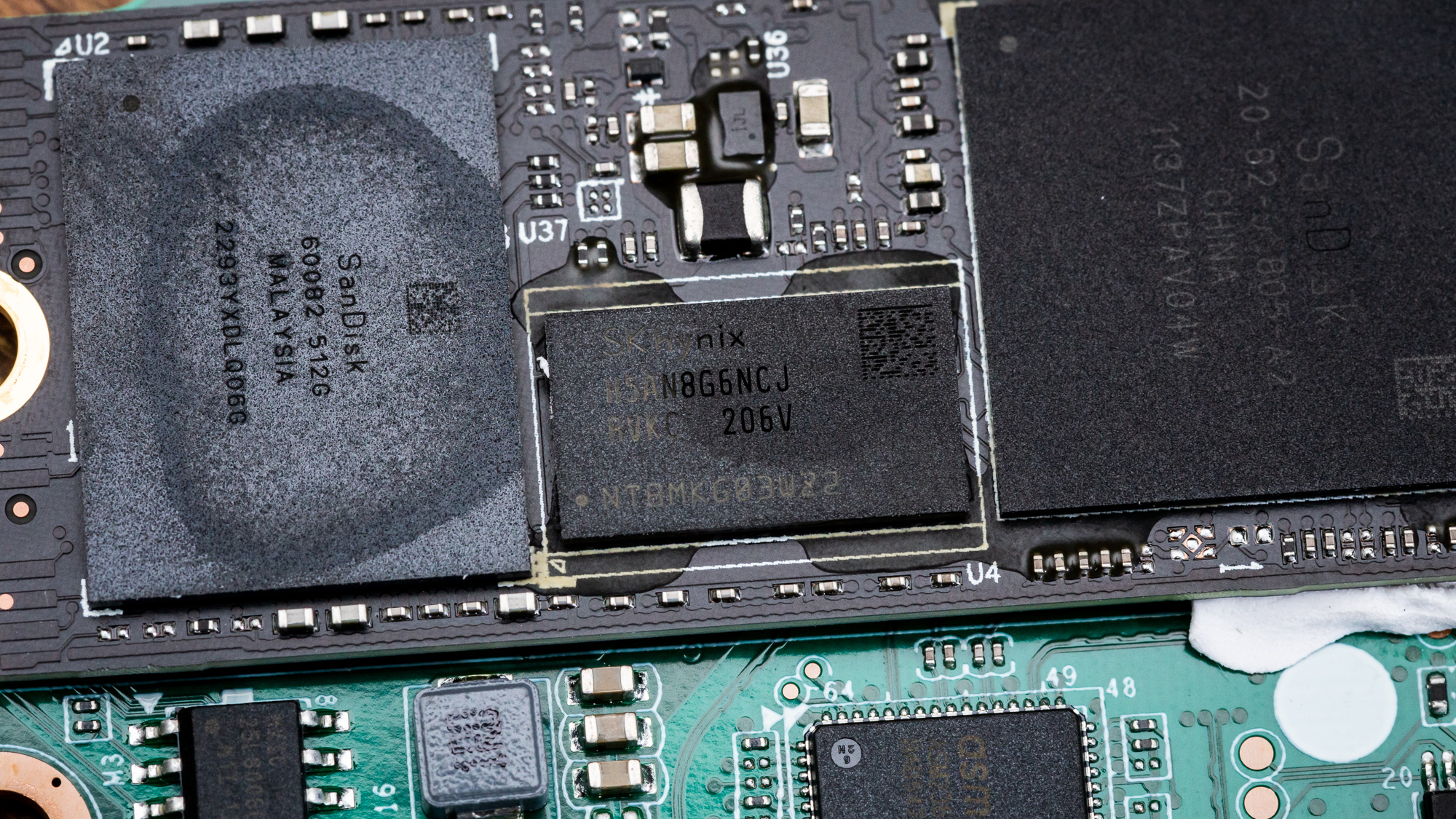
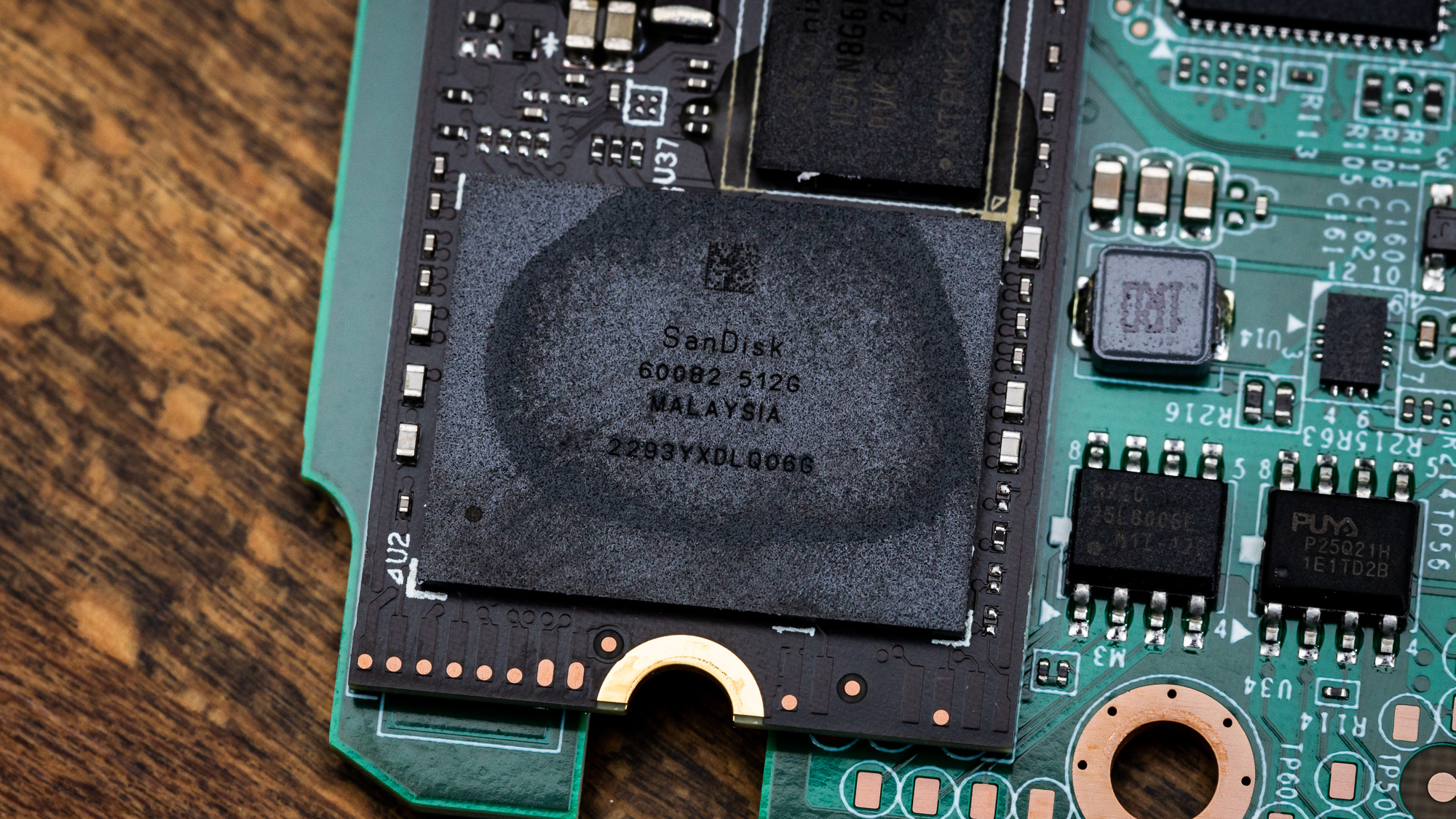
This controller is familiar as it’s the same one we saw on the WD Red SN700 and is also present on the WD Black SN730s used with the WD Black AN1500. Older, but reliable. The drive itself is the SN750E, much as the SN550E is in other WD/SanDisk portables. There’s been reports that these external-only controller revisions have reduced sustained performance when shucked and used as a standard drive in a PC. It doesn’t make much sense to shuck this drive, though.
1GB of SK hynix DDR4 is matched with 1TB of 96-layer BiCS4 TLC, the latter arranged in two 512GB packages. This makes this drive closer to the Red SN700 or Black SN730 than the Black SN750. This has the potential to be extremely consistent with sustained writes which should enable it to match or exceed the Samsung T7 Shield. This is older hardware: 112-layer BiCS5 TLC is becoming more commonplace, as in the WD Black SN770, however it is more than ample for portable use.
MORE: Best SSDs
MORE: Best External SSDs and Hard Drives
MORE: How We Test HDDs And SSDs
MORE: All SSD Content

Shane Downing is a Freelance Reviewer for Tom’s Hardware US, covering consumer storage hardware.
-
kyzarvs The advert from amazon in the article shows the UK price as £650 ($784 roughly today).Reply
Hard pass. -
fmyhr The names are becoming self-parodying: "Sandisk Professional Pro PRO..."Reply
At this point even an inscrutable alphanumeric jumble a la Mercedes (or AMD / Intel) might be preferable. -
Freedomfish I own two Sandisk Extreme Pro Portable 2 TByte (SDSSDE81-2T00) and I had no problem till today, but it seem that the SSD produced in the end of 2022 have some problems...Reply
here a translation of a german site: https://www.heise.de/news/Externe-Sandisk-SSDs-fallen-am-laufenden-Band-aus-9247983.html
it concerns the Sandisk's Pro-G40 too, have you some information about it?
Many Sandisk external SSDs produced since the end of 2022 are not running reliably. Since the beginning of the year, more and more reports have been increasing that operating systems can no longer access the disks. The stored data is practically no longer accessible.
The hardware does not seem to be broken per se. Instead, there are problems with the file system, regardless of the format and the operating system. For example, the SSDs say goodbye under Windows with FAT formatting, but also under macOS with HFS+. There are numerous reports on Reddit and .
The Arstechnica, The Verge and Petapixel websites also . In all cases, Sandisk ignores press inquiries and public contributions. Also a request by heise online on the 10. August has remained unanswered.
Insufficient firmware updates
On a support page, the Sandisk native Western Digital (WD) only that several external SSDs need a firmware update because they can "disconnect it unexpectedly from the computer." The company does not write anything about the possible data loss. On the page WD also lists its own SSD:
Sandisk Extreme Portable 4 TByte (SDSSDE61-4T00)
Sandisk Extreme Pro Portable 4 TByte (SDSSDE81-4T00)
Sandisk Extreme Pro Portable 2 TByte (SDSSDE81-2T00)
Sandisk Extreme Pro Portable 1 TByte (SDSSDE81-1T00)
Western Digital My Passport 4 TByte (WDBAGF0040BGY)
On the page you can use the search field to see if your own serial number is affected. The information provided by a distributor and user reports indicate that the problem occurs with models that have been produced since November 2022. According to reports, Sandisk's Pro-G40 also seems to be affected.
Meanwhile, the firmware update does not seem to create reliable remedy. The current versions have been available since May, but since then the problem reports are still frequenting – including people who have updated the firmware update.
